A New Dawn for Japan?
On November 20th we took our Eat Takeaway interview series on the road. We had the pleasure of hosting a panel of business and brand leaders from across Japan’s corporate and industrial worlds, in partnership with the British Chamber of Commerce in Japan (BCCJ) and moderated by Eat’s own Co-Founder and President Ayako Chujo.
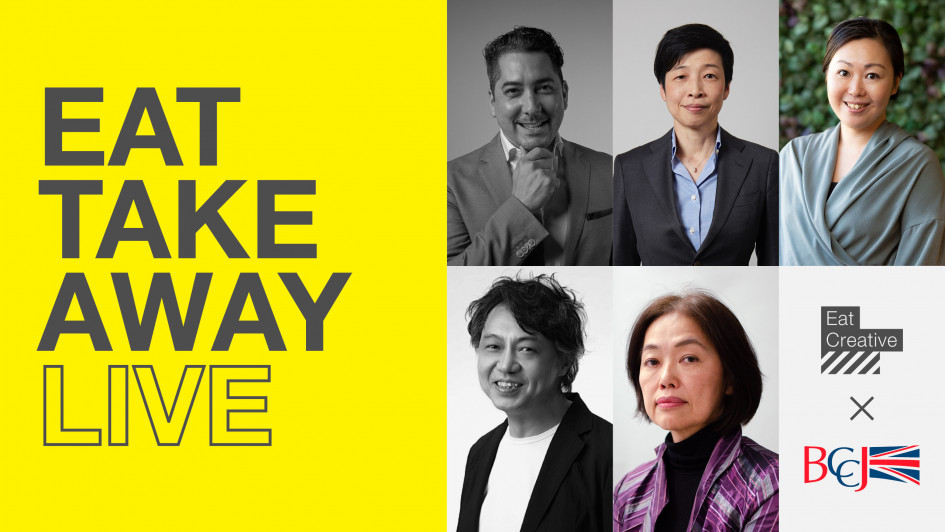
As Japan experiences new records of international visitors, a surge of investment in areas including hospitality and technology, a new government that has launched a US$250 billion stimulus package, and an increasing voice for the country on both the global financial stage and in geo-politics, many are figuring out if Japan is on a new path of economic growth and global relevance. With a number of false dawns in recent years as the country has struggled to revive its economic strength of decades now long past, we wanted to hear from those on the ground that are leading some of the most established businesses operating in Japan today to get their candid perspectives.
On the panel we had:
- Naoko Jihira, Head of Communications at Hoshizaki Corporation
- Yoji Minakuchi, Chief Design Officer at Suntory Holdings
- Konstantin Kriegelsteiner, VP of the Corporate Strategy Division and Head of Corporate Branding at Isuzu Motors
- Yuriko Iwasaki, Head of Communications at Unilever Japan
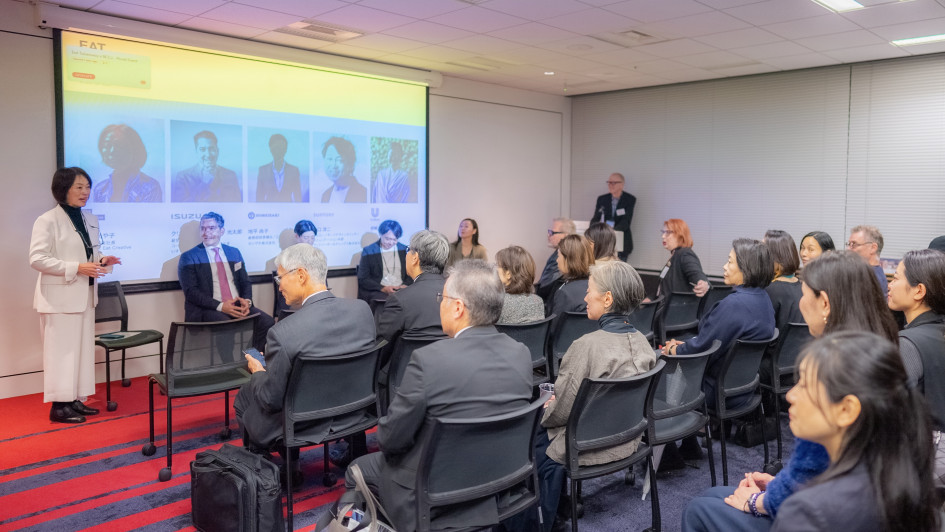
From the evolution of consumer needs and preferences in recent years, to the growing role of corporate partnerships to a greater focus on sustainability, our panellists are driving change across their businesses and industries. What insights were they able to share? Read on for a rare insight into how businesses and brands are focusing their efforts and shifting their priorities at a time of great change in Japan and around the world.
Please note this event was held entirely in Japanese and therefore can be interpreted differently when provided in English.

The only constant is change
A global pandemic, changing patterns of consumer behaviour, accelerating climate change, ageing populations, shifting trade patterns and an evolution in the geo-political status quo – you name it, it’s happening. With so many challenges and changes happening today, like companies around the world, Japanese firms are having to respond to these changes rapidly or risk losing competitiveness and relevance, and even a reason to operate. How are they doing this?
We heard from Yoji Minakuchi at Suntory that since a whiskey recession that started in Japan in the 1990s, the business has been focusing on its soft drink business. Today the soft drinks division is the firm’s largest area, reflecting declining rates of alcohol consumption in a number of key international markets as well as a shift in how and where consumers are purchasing and drinking alcohol. This has required a very different marketing and communications approach – from one that focuses on the social moments when consumers enjoy alcohol, to the daily routines that call for a soft drink. Despite the significance of soft drinks, Suntory continues to drive its whiskey business, with Japanese whiskey gaining such popularity today, particularly overseas, that it is now becoming difficult to find some of the more desirable labels. From Yoji’s perspective, consumer preferences are changing in 30 year cycles, so a priority has to be looking ahead and making plans not just for today or tomorrow, but for many years ahead. Having a diverse range of products helps counter this risk, as Suntory has seen its whisky and soft drinks take turns in driving business.
In the case of Unilever, a massive global organisation with a portfolio of products across beauty, personal care, home care and nutrition, the ‘new normal’ of working from home more often and people spending more time with their families mean consumer choices and needs have shifted. Younger age groups in particular are seeking out more premium products for the home for example. Yuriko Iwasaki on our panel told us that even in bad times, it is important to read between the lines and seek out new opportunities.
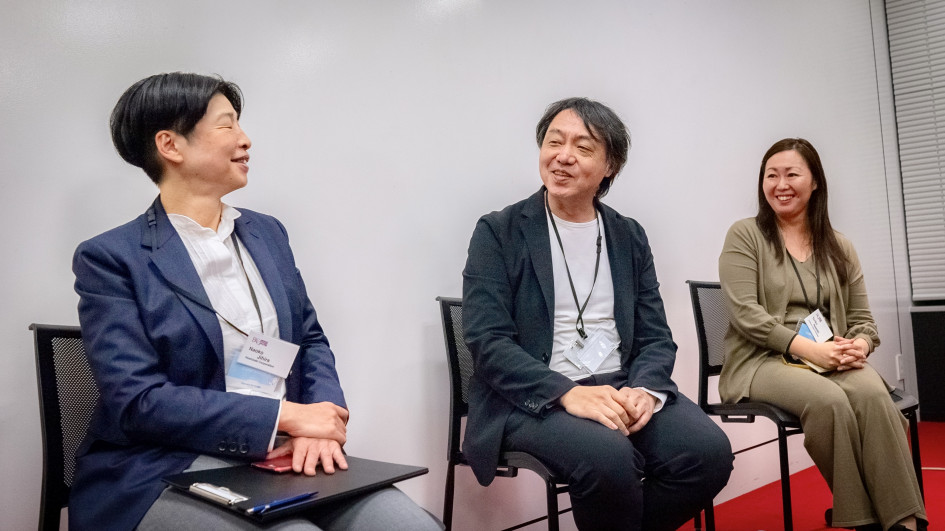
For food service equipment brand Hoshizaki, the Covid-19 pandemic was a tremendous challenge but also presented longer term opportunities. Diversification of its customer base into areas including agriculture, fishery and welfare services, means 60% of its domestic product sales come from customers outside their restaurant business. Labour shortages have been a big issue for the food service industry. Hoshizaki is filling that gap with new technologies including robotics, pushing the firm and the industry into new territories. Naoko Jihira told the audience that it has become so necessary to be imaginative and try and uncover needs among customers that have never been anticipated before.
And arguably, in no other industry has change been so swift but in automotive. Konstantin Kriegelsteiner at Isuzu Motors sees the shift from combustion engines to EVs as a once-in-a-century change, backed by strengthening regulations that reduce environmental impact and damage. And in response to the continuing shortage of truck drivers that appeared due to Covid and the '2024 Problem' in Japan, there is a growing need to develop trucks that can be driven with a normal driving license which would open up this form of transportation to a wider group of prospective employees. In the face of change, Konstantin highlighted that it is vital to predict societal trends to avoid manufacturing automotives only to be unable to launch when they are ready to go to market. At Isuzu, product development is being run with a 6-7 year outlook while maintaining flexibility as new regulations come into place and needs shift.

Partnerships for problem-solving
Our panelists overwhelmingly saw the positive impact of partnerships as a means to overcome the tremendous challenges experienced across industries and global markets today. These partnerships are delivering new innovations and providing brands with future-proof strategies that will maintain their relevance for years to come.
At Suntory, Yoji told us that the firm is pushing hard on a horizontal approach to PET bottle recycling. By partnering with local governments and communities, Suntory is visibly participating at the end-user level, rather than just leaving recycling programmes up to the municipal services providers. This pushes Suntory beyond the scope of its usual beverage production activities and gives the firm a holistic view on where it is having an impact on the environment and local communities, and where it can do more.
There is a similar approach playing out at Unilever Japan says Yuriko Iwasaki. Partnerships not just between companies, but with educational institutions and the United Nations, now sit at the center of corporate cultural development at the firm.
Isuzu Motors is taking a bolder stance when it comes to partnerships Konstantin Kriegelsteiner tells us. The automaker is buddying up with competitors on initiatives that go way beyond commercial vehicles and accelerate the firm’s goals for carbon neutrality. Whilst not giving away too many details, Konstantin says Isuzu is embarking on a reform of mobility systems in Japan that have never been seen before, with partnerships playing a key role in defining who leads the industry.
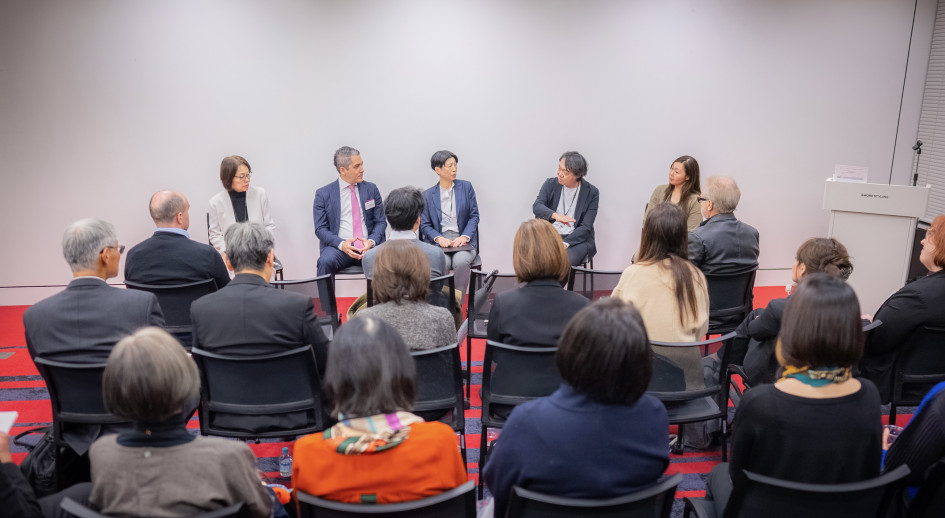
Naoko Jihira at Hoshizaki highlighted the firm’s partnership with a robotics startup to uncover new needs for its users. She reflects that change is not just driven by society itself, or by government, but by the large corporates and organisations that are bringing new innovations to market. But where are these innovations coming from? In many cases they are coming from the smaller firms that have developed unique new technologies that now need the support to scale. Naoko believes that partnerships can improve the quality of products and services, and play a critical role in revitalising Japan’s economy.

Economic imperative and sustainability is a balancing act
As climate disasters grow both in terms of size and frequency, environments continue to degrade and the sensitive ecosystems on which the health and welfare of people and all species depend decline, corporate behaviour and sustainability actions and policies play a critical role. But many business leaders continue to struggle with balancing this role with the need to be successful and competitive. Can a focus on sustainability, healthy societies, and positive climate impact, contribute to long-term business growth?
At Unilever Japan, Yuriko tells us that sustainability has been integral to corporate strategy since 2010, providing tools to enhance business performance and acting as a lens for corporate social responsibility at the firm. With huge supply chains and networks, Unilever is working with suppliers, distributors, packaging firms and others, to work towards the company’s net zero target. And when it comes to diversity and inclusion, Unilever is striving to remove gender bias, a big issue in Japan, in recruitment. Removing first names and photos – mandatory in traditional job applications in Japan – from employment applications has played a key role in this task.
Given Suntory’s connection to natural resources, responsibility and social contributions have been integral to the brand since its founding, says Yoji Minakuchi. It currently has legally binding contracts in place for the next 50 – 100 years to protect water sources in Japan and conserve forests. These activities are not necessarily visible to the general public though and therefore do not boost the company’s external reputation. Yoji sees these as activities that represent the deep acknowledgment of responsibility at Suntory and are activities that are essential to the long-term survival of the business. Most importantly, while Yoji feels positive about companies across Japan actively embracing sustainability, it is crucial for sustainability initiatives not to be seen only as duty and exams to pass, but with interest and care that enrich employees and company culture.
Konstantin Kriegelsteiner at Isuzu Motors reflects that in recent years, consumers have become more amiable to buying an electric vehicle, even if it might be a little more expensive than a traditional petrol / gas vehicle. For Konstantin, this trend will only continue, with more and more customers seeing a product such as an EV truck, as an investment in the future.
And at Hoshizaki, a deep integration with regulation at the local and national level in Japan means the firm is honing and refining its product capabilities to maximise environmentally beneficial impacts. Naoko Jihira seems these innovations as a core route to champion Hoshizaki’s unique proposition and build its competitiveness in Japan and around the world.
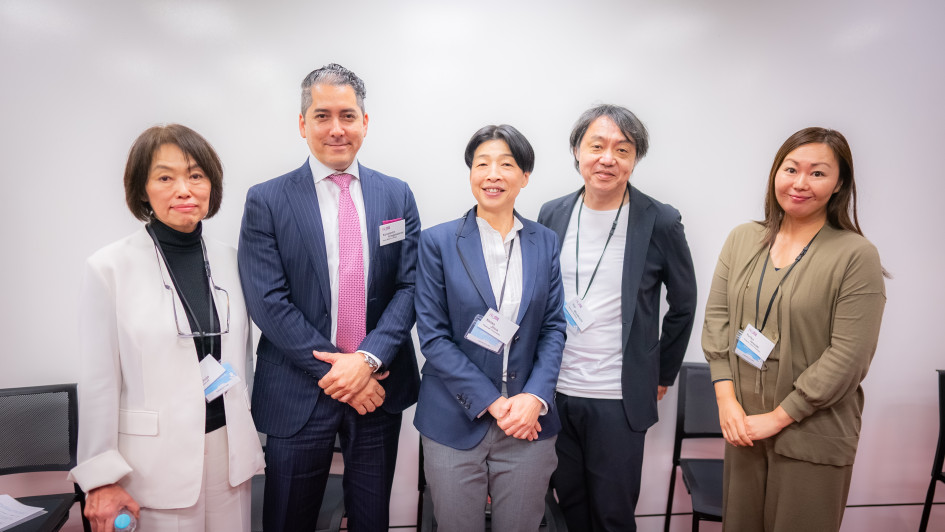
From left: Ayako Chujo, Konstantin Kriegelsteiner, Naoko Jihira, Yoji Minakuchi, Yuriko Iwasaki
We wish to offer our deepest thanks to our panelists for their time, insights and takeaways, as well as to the BCCJ for their support for this event. We look forward to our next Eat Takeaway Live in the near future so be sure to keep an eye out for an invitation. In the meantime, feel free to peruse our Eat Takeaway interviews with regional and global brand leaders on our Insights page. And do get in touch with us if you would like to discuss your own brand and business challenges in Japan!
*The views expressed are not those of their company but their own perspectives.